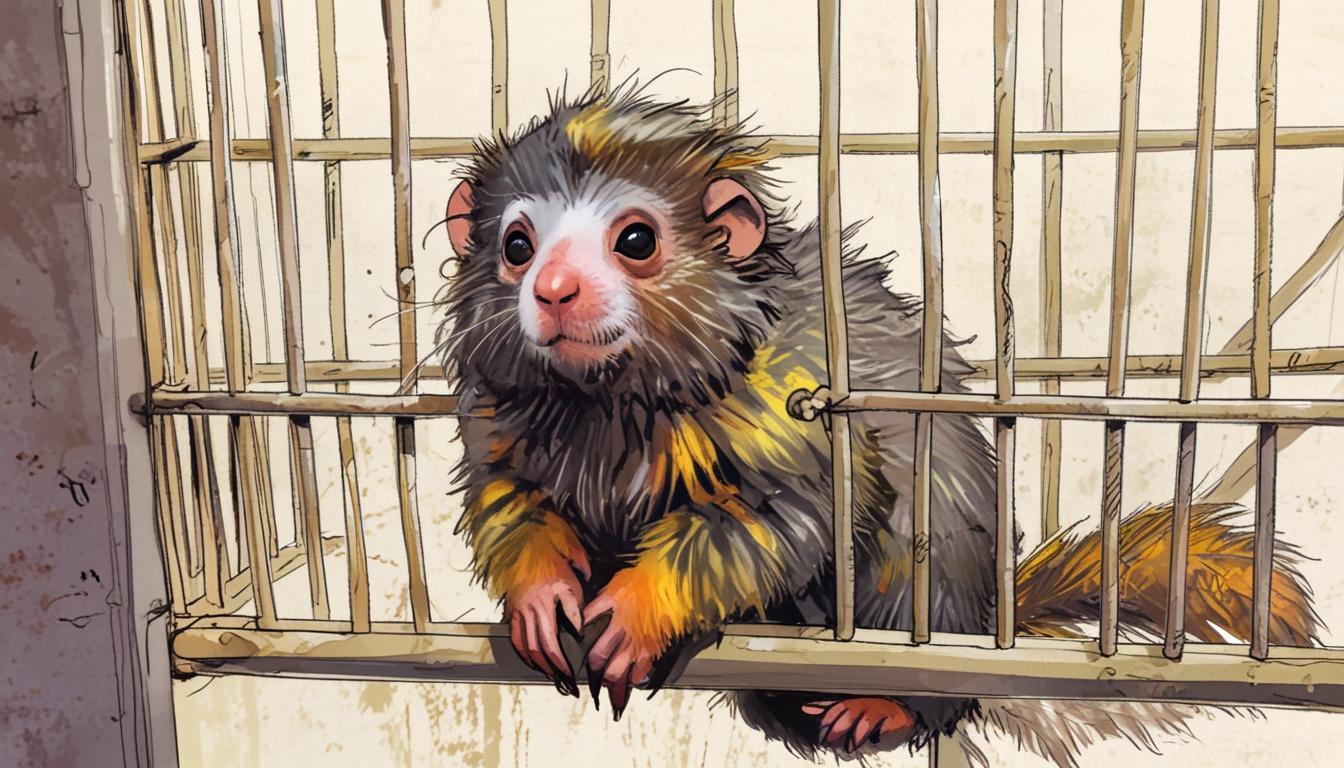A young marmoset named Steve has been rescued from a home in East Lothian, Scotland, where he was kept as a "novelty" pet in a large bird cage. Concerns arose from neighbours who observed the primate in distress, leading to a call to the Scottish Society for the Prevention of Cruelty to Animals (SSPCA). Upon their arrival, inspectors found Steve, a four-year-old marmoset, in poor health—underweight, stressed from constant handling, and addicted to sugary marshmallows, which had been given as treats.
Following his rescue, Steve received care at an SSPCA facility and has since been moved to a monkey sanctuary in England, where he can receive appropriate care. This incident sheds light on a broader trend in Scotland regarding the keeping of exotic animals as pets, raising significant welfare concerns.
In a campaign launched on May 1, the SSPCA, alongside the charities OneKind and Born Free, is advocating for stricter regulations surrounding the ownership of wild animals. They have termed their initiative "Don't Pet Me" and argue that current legislation is "inappropriate and outdated". The organisations are calling for a permitted list of animals to be introduced, aimed at preventing the suffering of animals kept in unsuitable conditions due to a lack of understanding of their needs.
Gilly Mendes Ferreira, the SSPCA's Director of Strategic Communications and Partnership Engagement, emphasised the issue, stating, “Many people are unaware of the scale of wild animal keeping in Scotland or the challenges it presents for animal welfare.” She noted that many exotic pets are acquired impulsively with little understanding of the complex care they require. Ferreira added, “Marmosets are highly intelligent, social primates that need space, stimulation, and the companionship of their own kind. No domestic setting—no matter how well-meaning—can truly meet those needs.”
Research by the involved charities indicates that there is a significant market for exotic pets in Scotland, with hundreds of species like snakes, tortoises, and birds being bought and sold, often without adequate oversight. Over a 16-week period, approximately 300 different species were available for purchase online, raising concerns about the lack of regulations governing animal welfare in such transactions.
Kirsty Jenkins, Director of Policy at OneKind, expressed her alarm regarding the treatment of exotic species, stating, “The research we commissioned painted a deeply worrying picture of how species commonly referred to as ‘exotic pets’ are thought of and treated—often as commodities or collections.” Jenkins highlighted the frequent issues of animals being housed in tiny enclosures, experiencing poor diets and social isolation, and suffering from injuries or death due to improper handling.
The launch of this campaign follows various incidents of wild animals being unlawfully released into areas such as the Cairngorms National Park, including the abandonment of four lynx earlier this year. These animals were found in a state of starvation and later transferred to Edinburgh Zoo for rehoming. Additionally, a herd of feral pigs was reportedly released in Kingussie, leading to concerns for both the animals' welfare and public safety.
The Scottish Government has been approached for comment regarding this ongoing issue surrounding exotic pet ownership and the call for legislative change.
Source: Noah Wire Services
